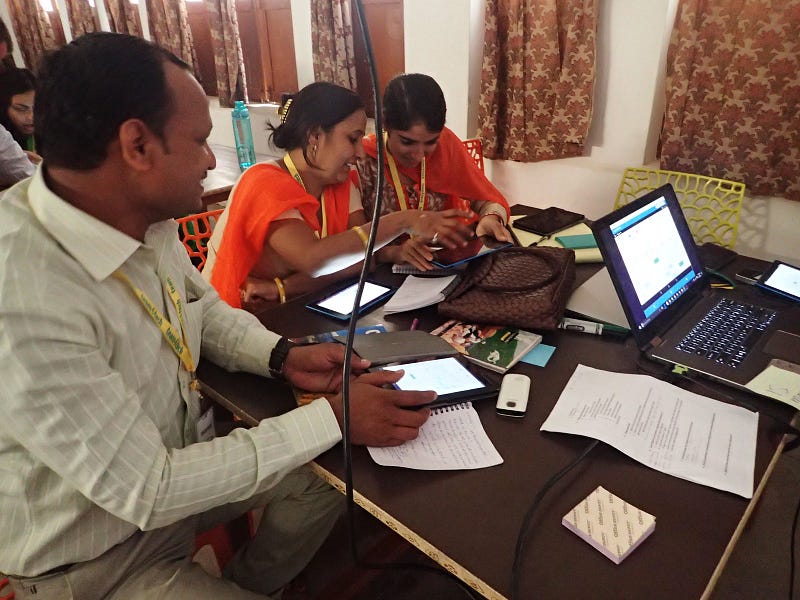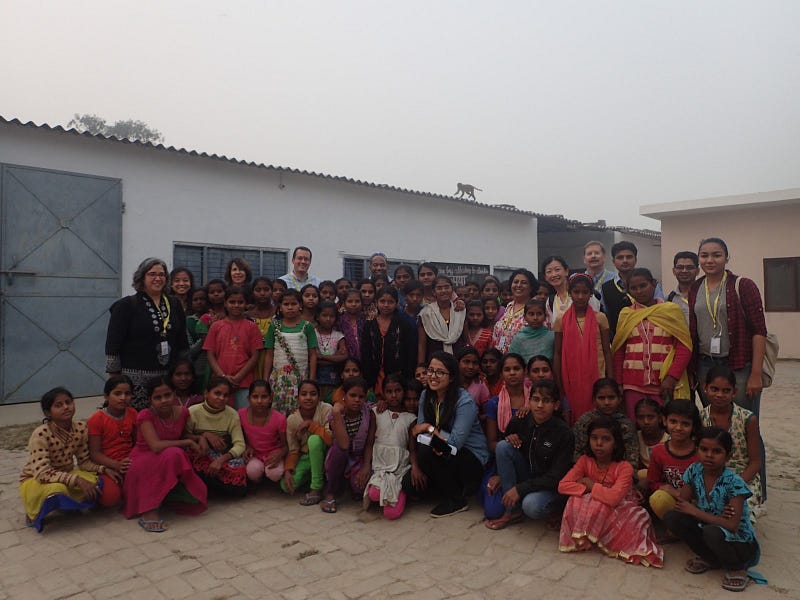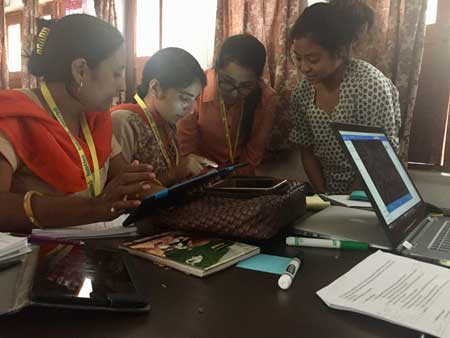A blog from Cornershop Creative:
Part 1 — Hardoi, Uttar Pradesh
For three weeks in November 2016, Aron Asor (our Software Development Lead) and I represented Learning Equality while working with two partner organizations in India. We spent the first week assisting Team4Tech and volunteers they recruited from Intel to deploy KA Lite and other Information and Communications Technology (ICT) tools in an all-girls rural school in Hardoi, a small town in the state of Uttar Pradesh. The following two weeks were spent with the Nalanda Project, where we observed how a large-scale deployment of KA Lite operates in various low-income schools and classrooms across the city of Pune. We had two objectives in both locations: (1) To assist on the technical side with troubleshooting issues and deployment, and (2) To deepen our understanding of how teachers, school staff, and learners are really using KA Lite and edtech in the classroom so that we can factor those findings into the development of our upcoming platform, Kolibri.
Week 1: Team4Tech with Udaan & CARE India
Per year, the Udaan residential program helps 100 adolescent girls from marginalized backgrounds get through grades 1–5 using innovative and hands-on teaching methods, and it takes just under a year for them to finish the program. Team4Tech partnered with CARE India at Udaan, and already had one prior visit in January 2016. Our role with the Intel volunteers was to help the teachers increase their ICT Literacy skills by delivering a series of workshops geared towards empowering teachers at Udaan to apply technology in their lesson planning and classroom activities.
The first two days were spent touching base on the status of infrastructure at Udaan and understanding the technology backgrounds of the teachers and staff. We learned that the school’s electricity was powered by solar panels and batteries, and that projectors were present, but rarely used. Personal smartphone use was almost ubiquitous among teachers, but they generally had less experience using desktop computers or laptops; some had none at all. An Internet connection was present at the school, but intermittent and very unreliable.
They did have a few laptops that were brought in during Team4Tech’s earlier trip. Some of the teachers would have several students share a laptop at the same time, and allow the students to play pre-installed educational games. A couple of the more tech-experienced teachers used the laptops to assist with their teaching like progress reports in Microsoft Excel and lesson plans in Microsoft Word.
They were eager to learn how to use the teacher tools available in KA Lite for tracking progress of their students. With the help of a couple of translators, Aron and I delivered 2 workshops on how students and teachers can use KA Lite, and tips on how to integrate it into their classroom practice by sharing examples of what has worked well for others using KA Lite.

The workshops were well-received by the teachers, and they expressed excitement especially about the wide availability of Khan Academy Math content in Hindi. One of the teachers even integrated it into a lesson while we were there! The Intel volunteers delivered additional workshops, diving deeper into PowerPoint, Word, Excel, GuruG (another edtech tool), and even typing games. Before we left, Aron also helped to install an updated Raspberry Pi with KA Lite and the Hindi content for the Udaan staff to continue using.
The teachers and staff at Udaan were energetic and lively, and warmly welcomed us into their space. The school was not only where the girls learned, but also where they lived, played, ate, and slept. The CARE India Program Manager told us that the teachers there taught more than just academics. They taught them life skills, good health & hygiene practices, work ethic, and self-awareness, and gave them psychosocial support. The teachers, she told us, essentially took on the role of their mothers and taught the girls through the “language of love.” It was indeed a special bond; I observed the girls often affectionately referring to their teachers as “didi,” which roughly translates from Hindi as “older sister.”

In a place where girls still face so many barriers to educational opportunity, Udaan is a fertile ground for planting the seeds of empowerment. The staff expressed hope that these girls will ultimately move on to become leaders in their communities and role models for other female youth. This dedicated staff already does incredible and inspiring work for their community, and we are excited to see what the teachers can further accomplish with their newfound knowledge and tools!
(This is part one of a two-post series. Our next post will be about the following two weeks in Pune with the Nalanda Project. Stay tuned!)
